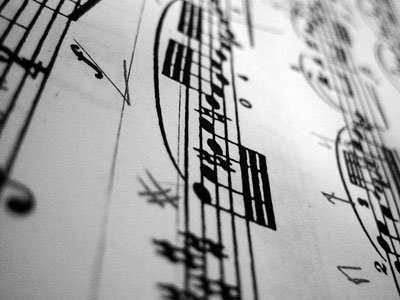All Nonfiction
- Bullying
- Books
- Academic
- Author Interviews
- Celebrity interviews
- College Articles
- College Essays
- Educator of the Year
- Heroes
- Interviews
- Memoir
- Personal Experience
- Sports
- Travel & Culture
All Opinions
- Bullying
- Current Events / Politics
- Discrimination
- Drugs / Alcohol / Smoking
- Entertainment / Celebrities
- Environment
- Love / Relationships
- Movies / Music / TV
- Pop Culture / Trends
- School / College
- Social Issues / Civics
- Spirituality / Religion
- Sports / Hobbies
All Hot Topics
- Bullying
- Community Service
- Environment
- Health
- Letters to the Editor
- Pride & Prejudice
- What Matters
- Back
Summer Guide
- Program Links
- Program Reviews
- Back
College Guide
- College Links
- College Reviews
- College Essays
- College Articles
- Back
The Joy of Music From the 1960s to the 1980s
Though many songs today have a catchy tune, such as bubblegum pop or rap, their lyrics often tend to talk about relationships, such as 2010s Taylor Swift or Justin Bieber pop songs, or in many rap cases, sexual lyrics with many profanities inside. I personally prefer the 1960s, 1970s, and 1980s for my music. At the same time, I less enjoy metal and more prefer pop rock, or “pop n’ rock,” and soft rock. Some of my favorite artists are Huey Lewis and the News, Daryl Hall and John Oates, Elton John, Rod Stewart, and Dobie Gray. Some of the songs that I listen to, such as the song that introduced me to Dobie Gray, Drift Away, have had modern remakes by other artists. Another good example of an old song that has gone through many remakes is I Can See Clearly Now, originally by Johnny Nash, but remade later in the same decade, the 1970s, by Jimmy Cliff, and now it is known commonly as the Claritin advertisement theme song. Songs such as Drift Away by Dobie Gray, American Pie by Don McLean, and Kiss On My List by Daryl Hall and John Oates, show the soul that was included in music of the past. It sometimes even strikes me as greatly upsetting that modern artists have appeared to forgotten the key part of music that makes it music: the energy and soul. Music was and still is an emotional outlet, but it is also used more commonly for profit. To me, the sixties, seventies, and eighties have deeply touching songs that you can use for any occasion. If life gets you down, Drift Away by Dobie Gray and the Jimmy Cliff version of I Can See Clearly Now are always good choices, because there is nothing I want to do more than listen to the older music to keep me happy and relaxed when I had a bad day. If you’re in love with someone, why not try such romantic classics as Kiss On My List and You Make My Dreams Come True by Daryl Hall and John Oates, Build Me Up Buttercup by The Foundations, Baby I Love Your Way by Peter Frampton, Stuck With You by Huey Lewis and the News, or Your Song by Elton John? Conversely, if your heart has been broken, there are songs that help fill that emotional niche too. She’s Gone by Daryl Hall and John Oates, Baby Come Back by Player, and Missing You by John Waite are all songs that can more than pick you up out of a bad relationship… they can make all that heartache fade away for a little while because you connect with them so deeply. If you’re in a bad relationship, you could try If This is It by Huey Lewis and the News, Rich Girl or I Can’t Go For That by Daryl Hall and John Oates, I Just Died In Your Arms Tonight by The Cutting Crew, You’re So Vain by Carly Simon, Cold as Ice by Foreigner, or Tainted Love by Soft Cell to express your feelings to your partner. In fact, the reason why I like American Pie by Don McLean is because of how widely forgotten and ignored the older music tends to be nowadays, so in a sense the music has felt like it died a little from the lack of listeners, and I feel deeply disturbed that some of people my generation will conclude they do not like such bands as Daryl Hall and John Oates before even listening to it. My personal Rod Stewart favorite, Forever Young, was most likely written for a fellow human being but I dedicate that song to the sixties, seventies, and eighties itself to signify that no matter how much time goes by, the older music will always remain forever “young,” or new, and will always deeply touch my heart in a way no modern song ever could. Ultimately, to me, it’s the lyrics and ideas behind the lyrics that make a song profound, not just a catchy electronic tune.

Similar Articles
JOIN THE DISCUSSION
This article has 0 comments.
